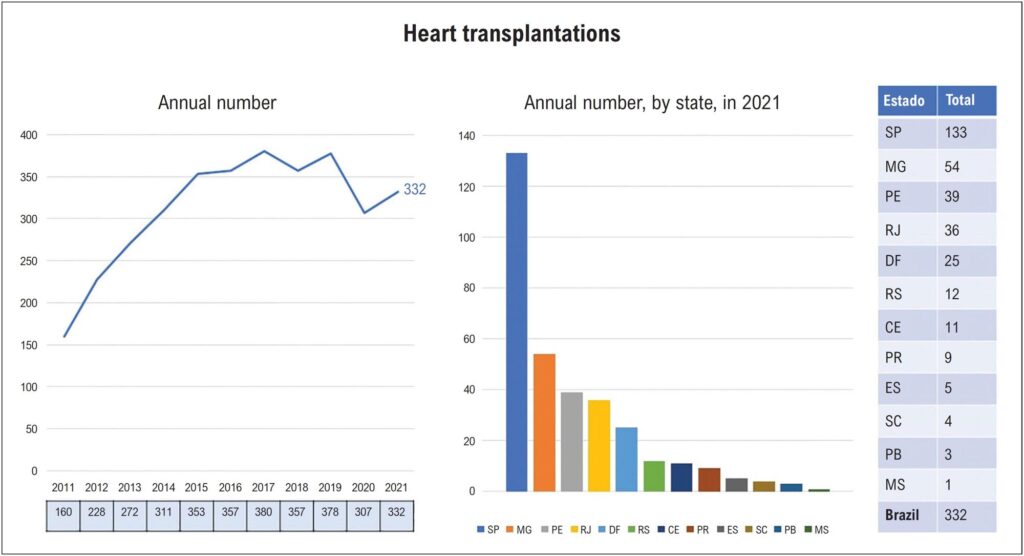ABC Heart Fail Cardiomyop 2022; 2(2): 126-130
How to Implement a Heart Transplant Program for Patients with Advanced Heart Failure
Introduction
Patients with heart failure (HF) refractory to guideline-directed medical therapy should be considered for advanced therapies, such as heart transplantation (HT), ventricular assist devices, or even palliative care in cases where these procedures are contraindicated or unavailable. In this scenario, HT is the standard treatment. Brazil has shown a significant increase in the number of transplants in recent years, but this number is still not compatible with the number of patients who require this treatment. Furthermore, most transplants are concentrated in few regions and centers (). The following factors limit the growth in the number of HTs performed in Brazil: few qualified transplant centers, inadequate care for donors, critical condition of recipients, and limited access to medium- and long-term circulatory assist devices. Transplant centers aim to optimize recipients’ clinical condition, to create logistical conditions to increase the efficiency of organ procurement, and to train professionals, thus generating a positive impact on the number and the outcomes of transplants. The organization of a transplant center with a multidisciplinary team is essential to improve not only the care provided to the recipient, but also the entire process involved in HT, including organ procurement. Transplant centers are composed of a broad multidisciplinary team responsible for evaluating and optimizing recipients’ clinical conditions, evaluation of donors, operationalization of procurement, perioperative care, and long-term care of HT recipients (). Teams are usually composed of the following: clinical cardiologists, cardiovascular surgeons dedicated to HT, nurses, biomedical doctors, intensive care specialists, infectious disease specialists, pathologists, immunologists, and others.
In this article, we will describe the functioning of one of the transplant centers in Brazil, which performs approximately 50 adult HTs annually and which works on a dedicated basis 24 hours a day, 7 days a week, with emphasis on the importance of a multidisciplinary team and each member’s respective functions.
[…]
481


